Eric BETTENS is a Belgian artist, passionate about this music which has shaped his life from a very young age. Today, in addition to write soundtracks for films and the composition of instrumental and orchestral works, he combines electronic and acoustic instruments with sounds captured in nature to compose eclectic and original works which have won him numerous prestigious awards. Often asked to perform large “light and sound” concerts Eric Bettens mixes various disciplines and techniques with his music (videos, pyrotechnics, lasers, lights, dance …) in order to offer his audience a varied and quality visual. Pictures of concerts are available here: https://www.ericbettens.com/shows and videos here: https://bit.ly/2YeTTfu – https://bit.ly/3eZRa04
Eric Bettens produced 5 albums : DISCOVERY (2006), ENTRE CIEL ET MER (2009) EMPREINTE (2012) et ANTARCTIC ODYSSEY (2014). HORIZON (2020). Unlike the first 4 albums, in which the content reveals a subtle mix of acoustic and electronic instruments, HORIZON is exclusively focused on “vintage electronic” sounds and will take you into a huge retro-futuristic fresco through an exclusively “vintage-electronic” atmosphere so dear to Jarre, Vangelis or other specialists in kind. In this album you will find synthesizers from the 70s to the present day, incorporating other electronic instruments such as the Theremin, the vocoder or the stylophone. You can discover the new album HORIZON here: https://smarturl.it/ericbettens
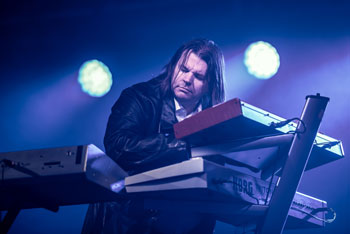
- Can you tell us a little bit about where you come from and how you got started making music?
Eric Bettens: I come from Belgium and I I started studying music at the age of 7, first the trumpet and percussion. But it was around the age of 15 that I became interested in electronic music and the world of synthesizers. Since then, I have worked on both side, classical orchestral music, film music and in electronic music.
- Have you had formal training or are you self-taught?
Eric Bettens: As I said just before, I started studying the basics of music from my childhood. I learned the trumpet and the percussion. The urge to compose music came a little later, when I discovered synthesizers. It was very simple things first, then I started putting my music on a few short films (the first was in 2001). The same year, I won a composition competition held at a documentary film festival related to the ocean. At this point, I was self-taught in the field of composition. It was only in 2011, after having composed a lot of music for films, albums, concerts, that I started a master’s degree in classical writing and composition at the Conservatory.
- Who were your first and strongest musical influences that you can remember?
Eric Bettens: Synth music artists like Jarre, Vangelis, were clearly my first influences. Also some soundtracks, (Terminator 2 by Brad Fiedel, The Rock by Hans Zimmer)
- What do you feel are the key elements in your music that should resonate with listeners?
Eric Bettens: Emotion, travel, sound space, discovery
- For most artists, originality is first preceded by a phase of learning and, often, emulating others. What was this like for you? How would you describe your own development as an artist and music maker, and the transition towards your own style?
Eric Bettens: I of course made some covers or imitations to make my hand, trying to get as close as possible to the original, but I also listened to a lot of music, in many genres to try to analyze the structures, sounds, timbres and very quickly, I tried to develop my own style, mixing acoustic and electronic sounds, adapting classical writing principles to electronic music, etc. It is this side that interests me, and that I work from the beginning. I also think that the style of an artist is never fixed, but on the contrary, that it evolves over time according to everything that the artist feeds as he goes along.
- What’s your view on the role and function of music as political, cultural, spiritual, and/or social vehicles – and do you affront any of these themes in your work, or are you purely interested in music as an expression of technical artistry, personal narrative and entertainment?
Eric Bettens: As soon as Man began to express himself through drawings in the caves, he drew musicians. According to eras, regions, customs, music can be a means of communication, of diversification, of bringing people together, of vector of emotions. When a people disappears, we have their culture. So I think that beyond its role of artistic and emotional expression, music has a real role in witnessing our existence.
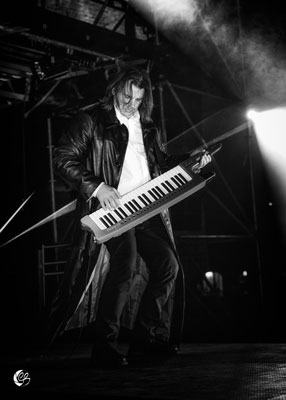
- Do you ever write a song with current musical trends, formulas or listener satisfaction in mind, or do you simply focus on your own personal vision and presuppose that it will be appreciated by a specific audience?
Eric Bettens: I think this is the eternal question of creators: do I do what I want, or do I format myself to please as many people as possible? We can oscillate between these two extremes but in my case, and more and more, I want to make the music that I like, the one that makes me vibrate, because the truth of emotion will be found there. It is a question of authenticity.
- Could you describe your creative processes? How do you most often start, and go about shaping ideas into a completed musical piece? Do you usually start with a rhythm, a narrative in your head, or a melody?
Eric Bettens: The process is different depending on the type of project. If it is film music, or an electronic project, I create my sound palette, decide on the main lines and I compose live while playing. I thus record a track, then another, etc…If it is a classic, orchestral project, there is a different reflection, a search for themes using a staff sheet and a pencil, this allows me to better reflect on the timbres, the instruments that I choose, harmony, orchestration … it is only when the big ideas (or even a large part of the piece) is written on paper that I encode my music in the software to benefit from the contributions of IT.
- What would you consider a successful, proud or significant point in your career so far?
Eric Bettens: Each end of the project is a personal success, and I’m proud of it, proud to have had the idea, to make it happen, to share it. Each project is a step towards the next project, a milestone in the career.
- If someone has never heard your music, which 5 keywords would you personally use to describe what you and your music is all about?
Eric Bettens: Sound diversity, journey, deep, soundtrack, vintage electronic
- If the name Eric Bettens came up in a conversation among music fans, alongside which other current artists would you most like to be associated with in that conversation?
Eric Bettens: From Jarre to Stravinsky, from Beethoven to Vangelis, from Palestrina to Hans Zimmer, what matters to me is the way in which the composer manages emotion and shares it with his audience. I cannot limit myself to one or two artists because from the moment everyone has something interesting to say, he can influence, consciously or not, other people. But I would feel particularly flattered if during a conversation my name was associated with one of those mentioned above
- Where do you do most of your recording and production work? And is that where you recorded your new album “Horizon”?
Eric Bettens: Most of my projects are created, recorded and mixed in my own studio. For the mastering of the album, I worked with the Streaky Mastering studio in London. I paid particular attention to the choice of sounds and mixing, and for mastering, I wanted a large, wide sound that respects the work that had been done upstream.
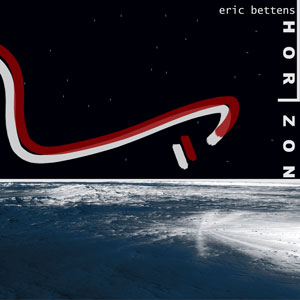
- What were the main compositional, performance and production challenges you came across on the new album?
Eric Bettens: From the start of the project, I had set myself two constraints: the first was to choose my sound palette from vintage sounds, so I used a lot of virtual legendary instruments (like minimoog, ARP2600, the moog modular, …). I also used some vintage hardware synths, and some more modern plugins (Zebra, Seaboard); the second constraint was that I wanted the whole album to be able to be listened to as a single track, to take the listener on a journey for a little more than 50 minutes. I have a classical music formation, and I really wanted to build this album as a symphonic suite, with relations between sounds and the different movements.
- Is there a particular song in the new album, on which you feel you delivered your most perfect performance, technically and emotionally, and which came out even better than you initially expected?
Eric Bettens: As I said just before, the album was designed as a single musical suite and each track has its particularity, its place in the story told in this album. To isolate one of the titles is like to remove it from its context. The title that is most in “format” would surely be the radio edit version of TOO FAR TO TALK (track 12). I also have a small preference for SO MANY STARS (track 5) or JULY 20, 1969 (track3) which is the first title which was composed for this album, and which gave its color to the whole.
- On the flipside, is there a track on the album that you keep thinking you should have done differently in some way or another?
Eric Bettens: The album has just been released, I worked on it until the last moment and I can say that at this moment, it is exactly as I imagined it. Maybe in the future, I will have another opinion, but the new ideas will be for the next project 😉
- How long did it take you to complete the entire album – from its conception to its release – and which phase took up the most of your time?
Eric Bettens: About a year, the composition and premixing phase were done simultaneously, which gave me a very good idea of the final result. Then the mixing also took the time necessary for each sound to be in its place
- What are some of the most important tools, software and/or instruments you used in creating your sound on the new album?
Eric Bettens: I work mainly on Logic Pro. In terms of instruments, I used the Arturia suite, the Zebra, Korg MS-20, Yamaha CS-15, and Roli Seaboard. I also used the Theremin and the Stylophone.
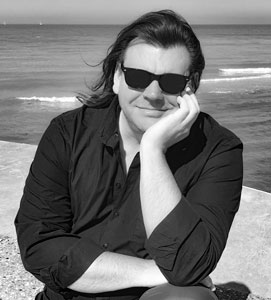
- Does the album have a central narrative theme, or are the songs just loosely connected? What message are you ultimately trying to communicate with new album “Horizon”?
Eric Bettens: The album was created to be streamed in one time and the continuous track available online or in gift with the physical CD is the best way to discover the album. “HORIZON” is a sound fresco, an incredible journey through space and time. It is therefore a journey from Earth with the first title (LEAVING) to the most distant object ever created by Man (Voyager). A “Continuous Play” version has also been created, chaining the 11 tracks of the album linked together by new transitions. “Set off from life on Earth and join the most distant earth object by calling on the moon, rubbing shoulders with the stars, passing through the ramparts of light while playing “space game”. But even if you are too far away to speak, your silence will speak for itself. Have a nice trip”
- You have highlighted the importance of the choice of sounds and mixing, how are you going to transpose all this on stage?
Eric Bettens: During my concerts, I like to offer a lot of visuals to spectators, that’s why the play of light is carefully studied, as well as lasers, pyrotechnics, video. With HORIZON, I still want to go further to immerse the public in the journey. With 3D sound and other visual surprises
- What do you find most rewarding about what you do? And do you have a specific vision or goal set in your mind that you would like to achieve in the near future?
Eric Bettens: When you create a work and share it with the public, it comes to life, it no longer belongs to you. So I hope that this new album will sail towards a Horizon as close as possible to the one I had in mind since the beginning of the composition process
OFFICIAL LINKS: WEBSITE – FACEBOOK – YOUTUBE – TWITTER – SPOTIFY – DEEZER – APPLE MUSIC

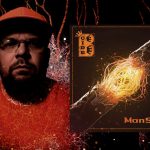
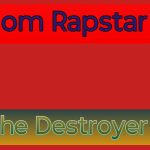
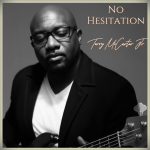
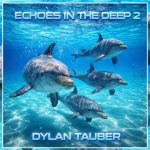

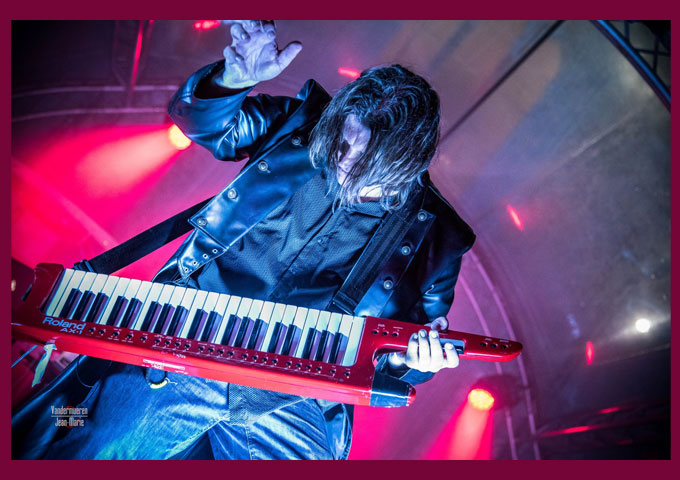
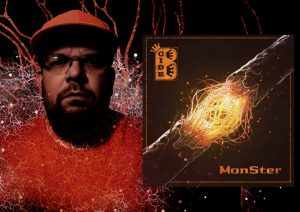
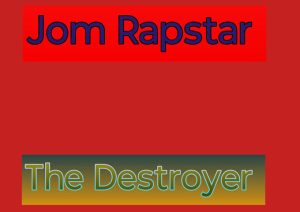
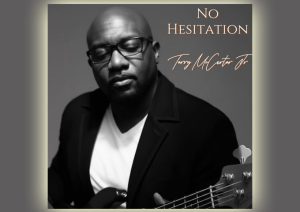
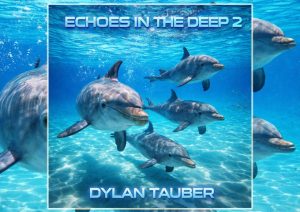
More Stories
Full-Circle Moments: Terry McCarter Jr. on ‘No Hesitation’, Family, Faith, and his Creative Growth
“Hay Zeus”, Heavy History: Ty Bru on Legacy, Layers, and Letting Go at 20 Years of MTTS
The Cosmic Factory on 15 Years of Psychedelic Alchemy and the Making of ‘Lab Grown’